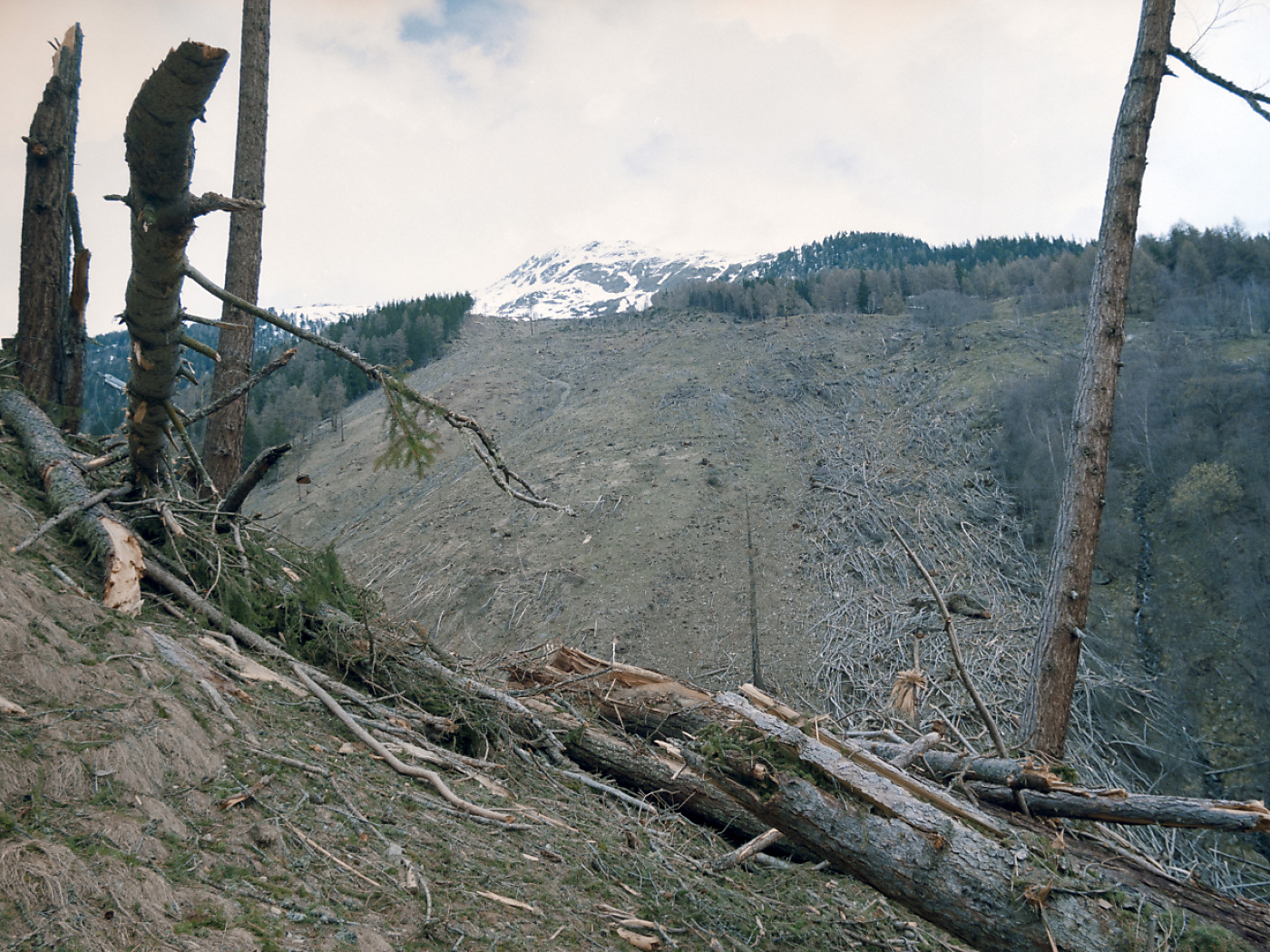
Climate change alters natural hazards in Swiss Alps

Climate change is intensifying natural hazards in the mountains, posing major challenges for the Alpine region. A Swiss study analysed over 300 scientific papers from the past three decades.
+ Get the most important news from Switzerland in your inbox
For example, rockfalls in the high Alpine region have increased in recent decades, according to the report. The permafrost there is thawing and the glaciers are receding. This weakens the rock and favours the release of stones and rock masses, the WSL Institute for Snow and Avalanche Research (SLF) announced on Thursday.
+ Read how Switzerland protects people from landslides
The study shows that the number of heavy precipitation events that can trigger mudslides has increased significantly. There is more activity above the tree line and in areas not previously affected. Due to the retreat of the glaciers and increased rockfall, more loose material is available there that can be set in motion by the precipitation.
+ Switzerland tries to defeat extreme weather events
Avalanche activity is decreasing at low altitudes because the amount of snow is decreasing there. At high altitudes, however, activity is increasing slightly, the report continued. The disappearance of the glaciers is also leading to fewer ice avalanches.
However, regional observations would indicate that larger ice avalanches have been occurring more frequently since the turn of the millennium.
Translated from German by DeepL/mga
This news story has been written and carefully fact-checked by an external editorial team. At SWI swissinfo.ch we select the most relevant news for an international audience and use automatic translation tools such as DeepL to translate it into English. Providing you with automatically translated news gives us the time to write more in-depth articles.
If you want to know more about how we work, have a look here, if you want to learn more about how we use technology, click here, and if you have feedback on this news story please write to english@swissinfo.ch.

In compliance with the JTI standards
More: SWI swissinfo.ch certified by the Journalism Trust Initiative




























You can find an overview of ongoing debates with our journalists here . Please join us!
If you want to start a conversation about a topic raised in this article or want to report factual errors, email us at english@swissinfo.ch.